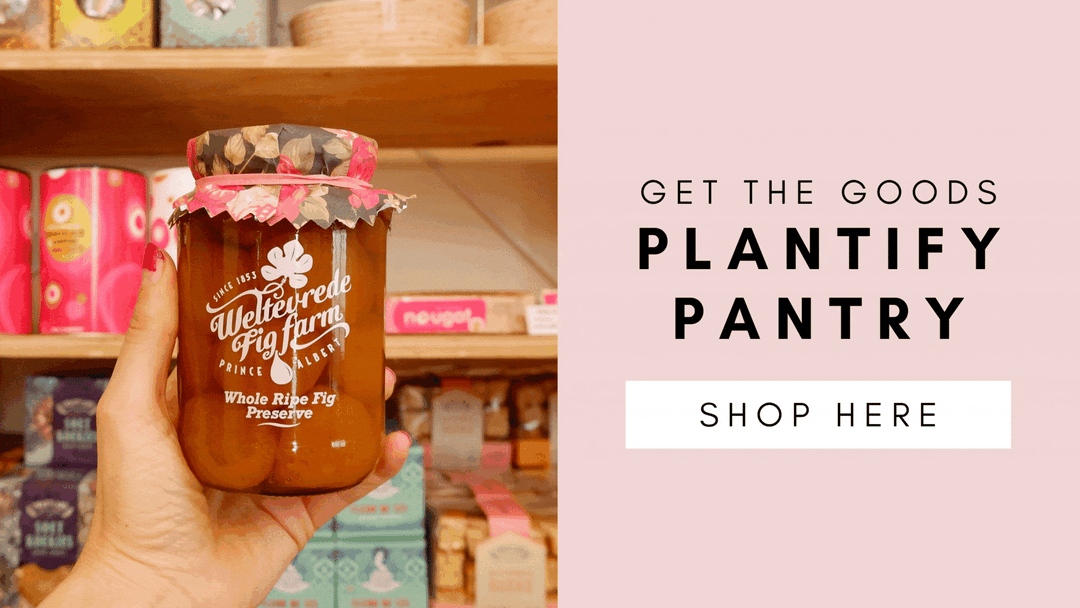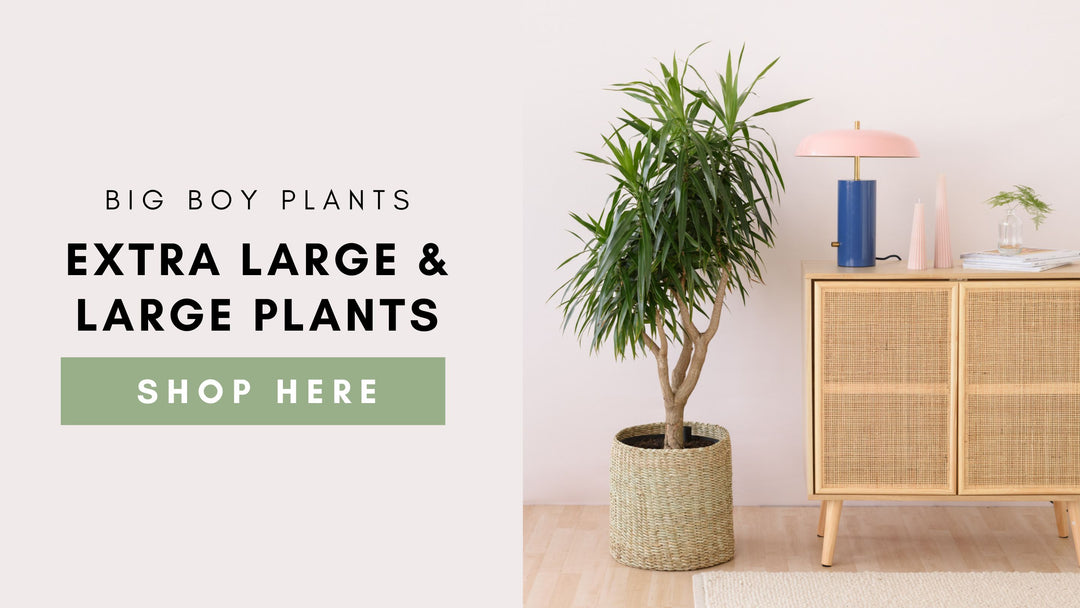Bird of Paradise Plant Care Instructions
Scientific name: Strelitzia Reginae
Synonyms: Orange Bird of Paradise, Bird of Paradise plant, Crane Flower
Bird of Paradise (Strelitzia Reginae) is the shorter, orange blooming cousin of Wild Banana (Strelitzia Nicolai). In its own right, however, this plant is a unique addition to any home, whether it be indoors or outdoors.
The Strelitzia Reginae, once prized for being an outdoor architectural piece in gardens, has been gaining popularity indoors as the houseplant trend has expanded. The foliage radiates a tropical vibe because it has fanned slender stems and spear-shaped grey-green foliage. They are not only beautiful to look at, but will also provide you with the perfect plant for a hot, sunny corner or a bright balcony. In addition, they are extremely low maintenance, making them the perfect beginner plant.
 Naturally occurring in South Africa these plants are highly tolerant of drought and direct sunlight, however, they do prefer regular watering and partial shade to look their best. The Bird of Paradise will produce some wonderful, bright orange blooms during Spring and Summer, creating an outstanding, unique display when provided with good light and care.
Naturally occurring in South Africa these plants are highly tolerant of drought and direct sunlight, however, they do prefer regular watering and partial shade to look their best. The Bird of Paradise will produce some wonderful, bright orange blooms during Spring and Summer, creating an outstanding, unique display when provided with good light and care.
As a result of their structural height, the Strelitzia Reginae is an ideal indoor floor display option. Whilst their stark contrasting foliage makes them a popular accent piece within very brightly lit spaces be it at home or the office, utilizing the warmth that these spaces often provide, making them ideal plants for a hot dry spot where little else will thrive.
The versatility in styling of the Bird of Paradise, which can be paired with both tropical and succulent plants to create a variety of aesthetic effects. There is something distinctive about Strelitzia Reginae's glaucous grey-green foliage among deep tropical greens, making it stand out. While styling it among succulents and cacti can create an indoor Xeriscaping appeal.
Please note: The Strelitzia Reginae is known to be toxic to Humans, Cats and Dogs.
Bird of Paradise Plant Common Symptoms
- Brown edges/ dark patches on leaves: If the air is very dry around your Strelitzia Reginae then your leaves will have brown crisp edges. Rectify this by giving your indoor plant an occasional spritz to increase humidity. Assuming that you keep your plant near a window with direct sunlight this could be causing your plant to burn resulting in dark patches. Move your plant approximately 30cm away from the window or relocate to a less direct light position. If you find that you have improved all of these conditions but your plant is still producing brown patches, then it is highly likely you are overwatering. Be sure that the potting mix is bone dry before watering again, and that your planter is draining sufficiently.
- Split / torn leaves: It is the nature of Strelitzia to shred their leaves when winds are strong to prevent themselves from being blown over in their natural environment. If your plant is in a strong wind or high traffic area leaves will end up becoming split. Move your plant to a more protected location.
- No flowers: If you want your Strelitzia Reginae to produce flowers you need to provide it with optimal light. Place your plant in the brightest spot indoors that you have available, if you can provide it with approximately 4 - 6 hours of direct sunlight this will be beneficial to getting your Bird of Paradise to bloom.
- Yellowing/Wilted leaves: This could be an indication of overwatering, be sure to only water your houseplant once the top 50% of your potting mix has dried. Check that your plant is not standing in water and that your planter is draining correctly as this could lead to root rot and ultimately death.
- Curled leaves: If your leaves are curling inwards this could be a sign that your plant is getting too warm and it trying to protect itself from water loss, this is also a clear indication of underwatering, so if heat is not the issue then rectify inward leaf curl by watering more frequently. Outward leaf curl could be a sign of overwatering (See above ) or not enough light. If your plant is not receiving adequate lighting relocate to a brighter position.
-
Pests: Bird of Paradise plants are not commonly invaded by pests but are susceptible to the common varieties of indoor pests such as mealybug, thrips, scale and spider mites. Identify which pests have befallen your indoor plant and adjust environmental factors accordingly. Remove pests manually where possible and then douse your plant with a good organic pesticide such as neem oil or pyrol.
Bird of Paradise Plant Care Instructions
- Origin: Southern Africa
- Height: 180cm indoors and 240cm in its natural habitat.
- Light: Bright to 4-6 hours of direct sunlight.
- Water: Water regularly allowing 50% of your potting mix to dry before next application.
- Humidity: Average room humidity is sufficient however if your air is very dry spritz leaves occasionally to prevent brown edges.
- Temperature: Ideal temperatures range from 21°C and above.
- Soil: A very well-draining rich organic potting mix is ideal for a lush indoor plant.
- Fertilizer: For optimal growth, fertilize every 2 -3 weeks during the growing season with a well balanced organic general-purpose plant food
- Repotting: Repotting should take place when your Strelitzia Reginae has become rootbound and not pushing out any new growth. Repot into a planter approximately 5 cm larger than its current container.
- Propagation: The best way to propagate Bird of Paradise is via division, do this when you are repotting and younger plants have become slightly established. Divide out younger plants by separating their roots from the mother plant, be as gentle as possible to avoid root damage. Re-pot divisions into a well-draining rich potting mix and treat as you would the mother plant.
If in stock, shop for Bird of Paradise here



